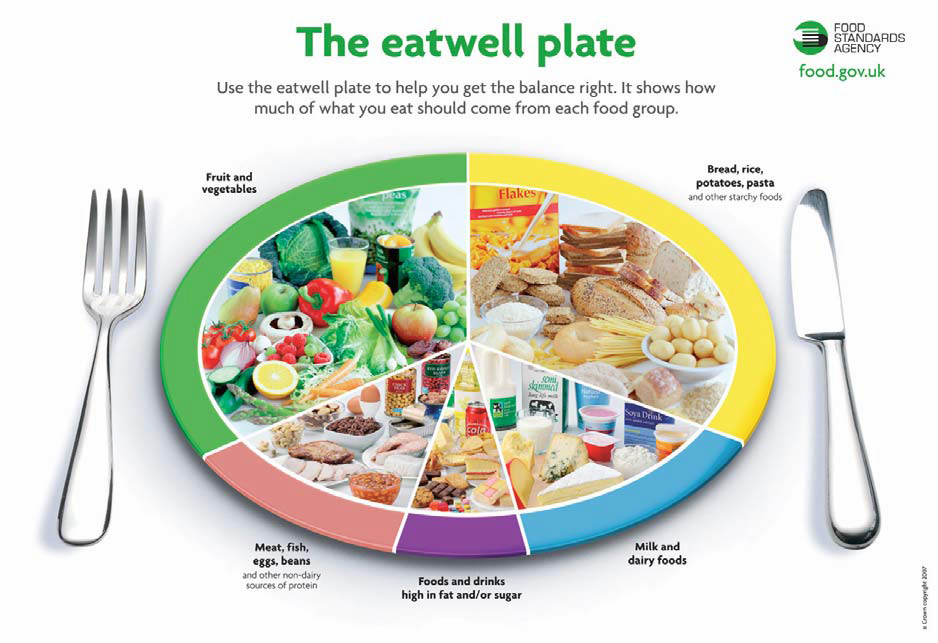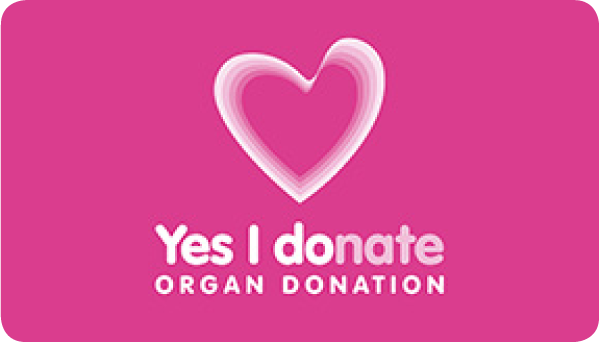Post-Transplant diet
One of the benefits of a successful kidney transplant is that you can enjoy a more varied diet.
Potassium
Successful transplants should mean that your previous potassium restriction is relaxed. Your dietitian and doctor can further advise you about how to reintroduce high potassium foods, such as bananas, coffee, nuts and chocolate. When you have been advised you can reintroduce potassium containing foods, be sure to do this gradually for example, one new item a day and not everything all at once.
Phosphate
Phosphate binders are stopped after a kidney transplant and you should no longer need to follow a phosphate restriction.
Calcium
Long term steroid use can weaken your bones and increase the risk of fractures. Sufficient calcium intake may help prevent this. Good sources of calcium include milk, cheese, yoghurts, tofu, calcium-enriched soya products (choose lower fat options if you are conscious of your weight).
Salt
Continuing to follow a no added salt diet is recommended to help prevent high blood pressure. Avoid adding salt when cooking or at the table, instead you could try using pepper, herbs, spices, lemon juice, vinegar etc which will not affect your blood pressure.
Grapefruit
After a transplant you should avoid eating grapefruit or drinking grapefruit juice because grapefruit interferes with the levels of the anti-rejection medication. You should also check things which may contain grapefruit such as mixed fruit juices.
Weight gain
In the first few weeks weight gain is likely to occur because of fluid retention after the transplant operation. However, in the long term many patients gain weight after their kidney transplant. This can be caused by:
• Steroids, for example prednisolone, which increase your appetite and make you eat more.
• Relaxation of dietary restrictions enables you to eat more freely, which can cause weight gain.
• Reduced activity immediately after transplant can promote unwanted weight gain.
If you are concerned about your weight, please ask to be referred to the dietitian in the renal transplant clinic.
Body Mass Index (BMI)
Your BMI indicates whether you are a healthy weight for your height. To work out your BMI, use the following formula: BMI = weight (kg) / Height2 (m)
| BMI (kg/m2) |
| Less than16 severely underweight |
| 16-19 underweight |
| 20-25 normal range |
| 25-30 overweight |
| More than 30 obese |
Healthy balanced lifestyle
A healthy, balanced diet combined with exercise will help prevent unwanted weight gain, helping to keep you fit and healthy.
Fruit and vegetables
As your potassium restrictions are relaxed you will be able to enjoy a wider variety of fruits and vegetables in your diet. They are naturally low in fat and high in fibre so can help fill you up and prevent snacking on other high fat/high sugar foods. Try to include a variety of different coloured fruits and vegetables and aim for five portions per day.
Fat
There are two main types of fat, saturated and unsaturated:
- Saturated: animal fats such as fat in milk, cheese, cream, fat on meat.
- Unsaturated: There are two types of unsaturated:
- Monounsaturated, for example olive oil.
- Polyunsaturated fats such as sunflower oil, omega 3 fish oils.
Saturated and unsaturated fats contain the same amount of calories (energy). Therefore only use small amounts of fat in your diet. Saturated fats can increase your cholesterol levels, which may increase your risk of heart disease and stroke. Unsaturated fats will not increase your cholesterol levels and so should be used in place of saturated fats wherever possible.
Tips
- Trim the fat off meat.
- Grill, bake or steam foods and avoid frying.
- Choose unsaturated fat spreads such as olive oil spreads instead of butter.
- Choose semi-skimmed milk or reduced fat dairy produce.
Sugar
Sugar provides energy, which if not used, will be converted into fat and stored in the body. If you are conscious of your weight, choose low calorie and sugar-free drinks and try to avoid sugary snacks. Go for high fibre options instead, for example fruit, teacake or toast.
Alcohol
As long as there are no contraindications with your medications alcohol is safe to drink. You should not regularly exceed the recommended daily limits: three to four units/day for men or two to three units/day for women. Excessive alcohol may reduce the effectiveness of some of your medications.

Food hygiene advice post-transplant
After your kidney transplant you will have to take immunosuppressive medication, for example, tacrolimus, cyclosporin, mycophenolate mofetil or azathioprine. These reduce the activity of your immune system to help prevent your new kidney from being rejected. Your immune system protects your body by fighting infections. When the level of your immune function is reduced, you will be more likely to catch infections. There is a risk of catching a food borne infection such as Listeria or Salmonella which may or may not present with symptoms. If you follow the advice below, you will reduce the risk of getting a food borne infection.
Some guidelines to help reduce your risk of infection from food and drinks:
Shopping
- Only eat food that is still within its use-by or best-before date.
- Purchase meat and fish from clean counters.
- Once purchased, put fresh foods into the fridge or freezer as soon as possible.
Preparation
- Keep pets out of the kitchen
- Wash hands and protect cuts and wounds before handling food
- Wash and dry utensils, (for example knives) and work surfaces (for example chopping boards) between preparation of raw and cooked food to avoid crosscontamination
- Wash all fruit and vegetables before preparation
Cooking
- Thaw meat, fish and poultry in the fridge, not at room temperature
- Cook meat, fish and poultry thoroughly
- When reheating food, ensure it is piping hot
- Never reheat food more than once
- When using a microwave, follow the cooking and standing times and know the power rating
Storage
- Regularly check the fridge/freezer temperatures. Ensure the fridge is 5oc or lower and freezer -18oc or lower
- Never refreeze thawed food
- Cover all foods in the fridge
- Store raw and cooked foods separately. Keep cooked food above raw in the fridg
Eating out and going abroad
- When eating out or having a takeaway, ensure food is fresh and well cooked.
- Take extra care when abroad as food hygiene standards may be poorer. Try to use only reputable restaurants/eateries, avoid food sold on streets or markets.
- We recommend you avoid salad bars, carveries, deli-counters and buffets
For more advice on holiday travel see here
Specific foods and drinks to avoid to help reduce your risk of food borne infections
The attached list of foods should be avoided by all transplant patients to minimize the risk of Listeria or Salmonella infection.
| Types of food to avoid | Alternative choices | |
| Milk | Unpasteurised milk such as milk sold on local farms | Pasteurised milk, tinned milks, UHT, dried milk |
| Yoghurts | Unpasteurised yoghurts
Yoghurt which is described on the label as bio or probiotic or ‘bio’ drinks or supplements such as Yakult, Actimel |
Pasteurised yoghurts
Any yoghurt that does not describe itself as bio or probiotic including live, plain, Greek and fruit yoghurts |
| Cheeses | Blue-veined and soft mould-ripened cheeses such as Brie, Camembert, Dolcelatte, Roquefort, Feta, Cambozola, Stilton, Danish blue
Soft sheep and goats cheeses Soft cheeses made with unpasteurised milk for example feta |
Hard cheeses such as Cheddar,
Red Leicester and Edam (cut off any visible rind) Processed cheese, for example Philadelphia, Dairylea, Kraft, Cottage cheese |
| Eggs | Raw eggs or undercooked eggsDishes containing raw egg, such as homemade mayonnaise, mousse hollandaise sauce, egg nog | Hard boiled eggs, Well cooked scrambled egg Well cooked omelette Shop bought mayonnaise |
| Fish | Raw fish such as sushi Raw or lightly cooked shellfish Raw oysters, caviar Avoid smoked salmon unless eaten directly from a freshly opened packet |
Well cooked fresh, frozen, tinned fish Well cooked shellfish for example prawn curry |
| Meat | Raw or undercooked meats, including rare meats for example steak tartare Fresh pate Smoked meat such as salami |
Well cooked fresh, frozen, tinned meat Tinned or bottled pate/paste Thoroughly cooked BBQ meats |
| Fruits & Veg | Unwashed Fruit Unwashed Vegetables Shop bought salads such as coleslaw, potato salad |
Washed fresh fruit Tinned, dried and stewed fruit Cooked fresh, frozen, tinned vegetables. Washed salad items |
| Ice cream | Soft ice-cream for example Mr Whippy, McFlurry.Homemade icecream | Hard or individual ice-creams – serve and eat asap |
Remember looking after your food is part of looking after your health.




